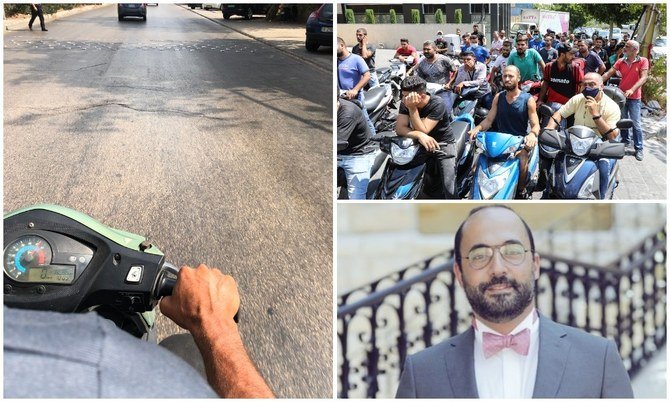
- ARAB NEWS
- 12 Jul 2025

BEIRUT: Lebanon’s massive fuel crisis obliged a doctor to use two motorcycles and a car to dodge roadblocks caused by petrol station queues and attend his patient’s urgent delivery operation. In less than an hour, Lebanese obstetrician-gynecologist Dr. Julien Lahoud was forced to take unusual commuting methods to reach his patient, who was in labor since 8 a.m. Monday morning.
“My patient was in her ninth month, and I had previously operated on her for a C-section,” Lahoud told Arab News on Tuesday, recounting what had happened due to blocked roads.
He said the “patient was in pain, and it took her a few hours to reach the hospital” in Ghazir, eastern Beirut.
The doctor had left his Beirut clinic toward Jounieh (around 25 km away) but was stuck in heavy, bumper-to-bumper traffic caused by roadblocks and kilometers-long queues of cars waiting at stations along the Beirut-Dawra-Dbayyeh-Jounieh highway.
“Recently, we’ve been seeing cars queueing at petrol stations. As a precautionary measure, I have been keeping a bicycle in my car trunk and have used it for short distances,” said Lahoud, explaining that would not have been an option for Monday’s incident.
Monday traffic was at a near standstill, and the first part of the doctor’s route to Ghazir had to be on a motorcycle.
“I arranged for a car ride at some point where traffic had eased up near Dbayyeh. The car moved for some distance but traffic came at a complete halt after the Nahr Al-Kalb tunnel,” he said.
Not thinking twice, he opened the car window and stopped the first motorcyclist he spotted.”Without even knowing the motorcyclist, I didn’t hesitate to ask if he could give me a quick lift to the hospital. He instantly said yes,” Lahoud said, calling the motorcyclist “gallant” and a “savior.”
A public health professional, Lahoud explained that his patient’s medical situation was critical, as she had already had a C-section, and time was a major factor.
“Mercifully, I arrived on time and she had a smooth delivery. Her husband arrived late due to traffic.”
Lahoud took to social media to share his experience, saying that both mother and child fared well, though the same could not be said of his country. “Lebanon is NOT fine,” he wrote.